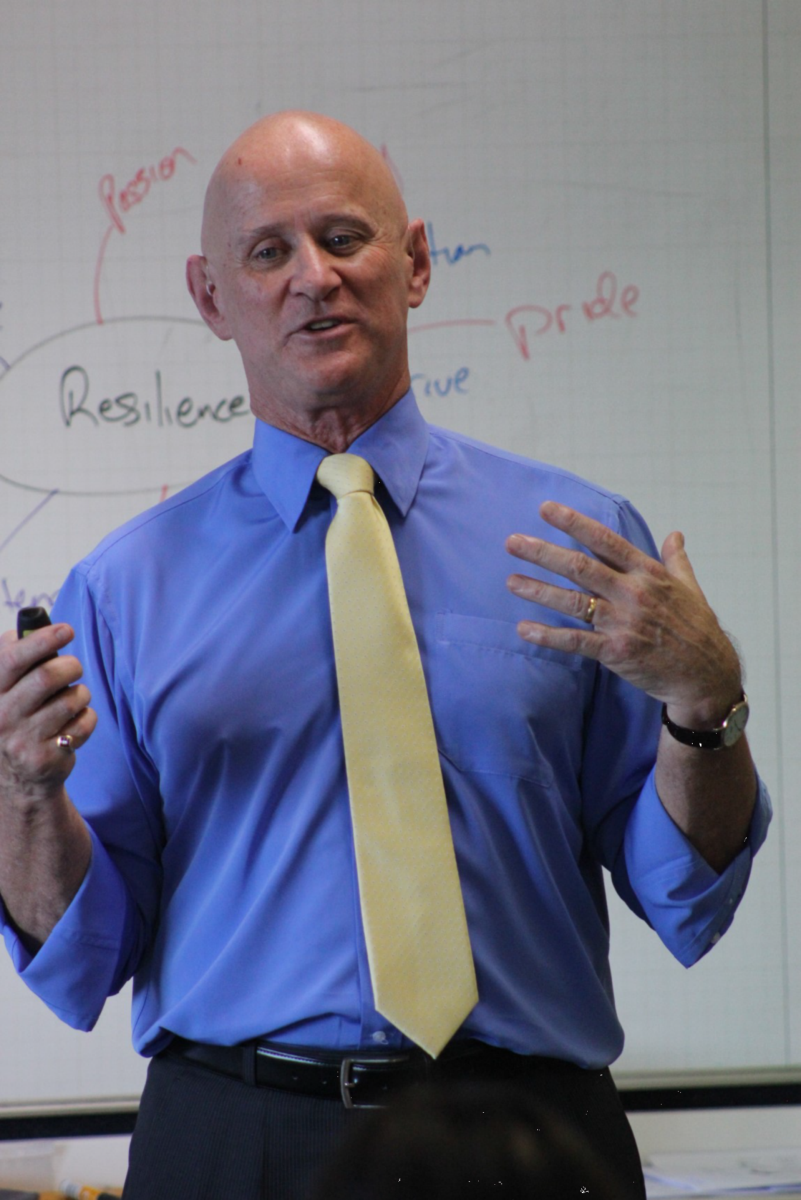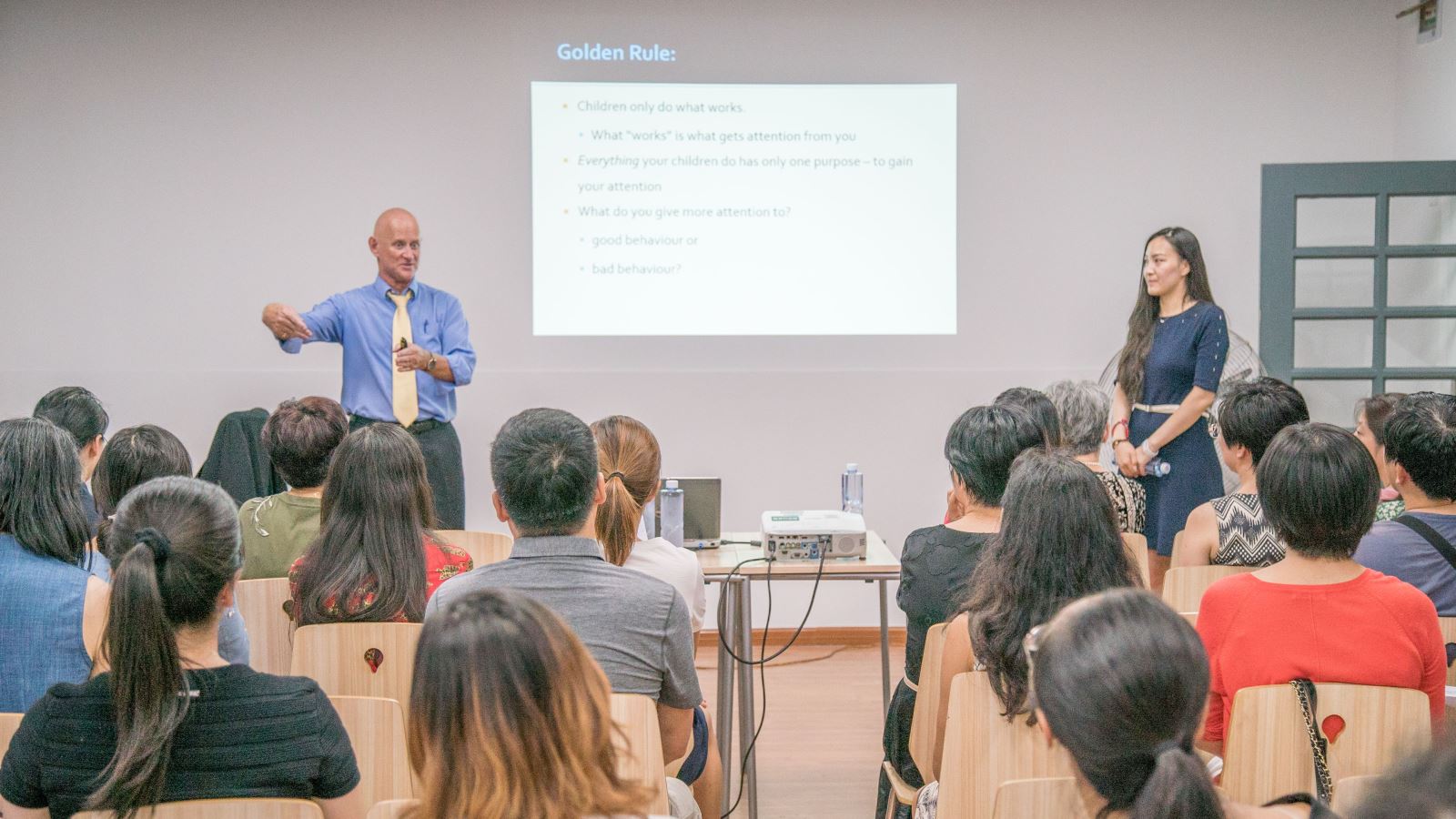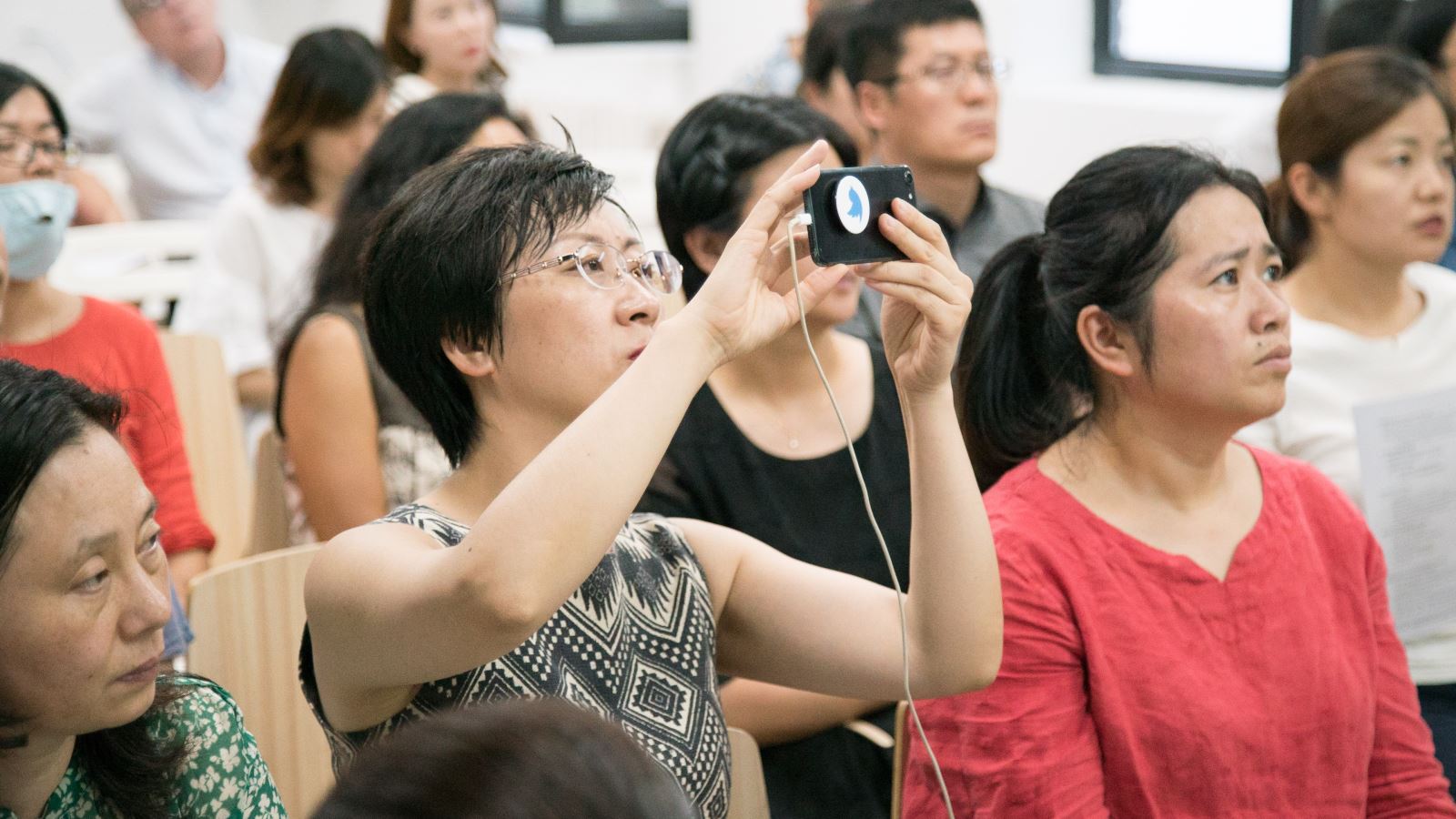THE ART OF LEARNING: COURAGEOUS PARENTING FOR A DIGITAL AGE
“It is not events that shape our lives but our response to those events.”
——Lance King
Mr. Lance G King

- Creator of the Art of Learning programme delivered to over 250,000 students in 34 countries
- Designer of the new IB ATL programme currently being implemented in over 4000 schools in 150 countries
- International author of learning skills for students, parents and teachers
- Workshop facilitator in over 300 schools worldwide and many international conferences
With the coming of the digital age, there has been an ongoing debate whether we should or not give children access to devices such as iPads, phones or computers that connect to the Internet. We are witnessing positive and negative impact of digital media on parents and children, but it seems that we do not have any ready-made strategies to address those new challenges.
On the sideline of a two-week teacher training that took place before the official start of the new school year, BISS invited Mr. Lance G King, the creator of the Art of Learning programme, to hold a seminar for parents on the topic of “courageous parenting for a digital age”.
In Mr King’s view, “courageous parenting” means having the courage to address children’s needs instead of their wants. For instance, in England, many 5-year-old children own a mobile phone, which happens in response to the children’s “wants” instead of their actual “needs”. Apart from this, courageous parenting also encourages parents to do what is in the child’s best interest, which includes: making sure that children are well prepared for a digital future, involving children in any decision making that impacts their lives, helping them to develop an academic passion, and allowing them to make choices that will impact their future.

Lance King is delivering a speech
Indeed, there is no“one-size-fits-all” solution for all of the problems that one might encounter as a parent, but here are some tips shared by Mr. King, that you might find useful in helping your children be well prepared for a digital future:
“1)Help your children to develop the confidence to speak up in class and present their work to others
It may be helpful to encourage children to recite poetry or role-play at home. As a parent, you can play the role of the engaged audience at your children’s performance, show interest, and encourage them to practice any school presentation at home in front of the family.
2) Help your children learn how to be comfortable asking questions
At home, you can encourage your children to ask you questions about anything they do not understand; however, instead of giving them the answer, you can help them to work it out by themselves. Remember, always be open to admitting you do not have the answer to everything, and make sure you offer suggestions on how to find the answer.
3) Support your children in setting up a collaborative study group with other students
Children teaching other children is the most powerful learning method. As a parent, it is important to emphasize cooperation, not competition. It is also important to identify strengths and admit weaknesses, to then utilize all individual strengths for benefit the whole group.
4) Help them learn how to make good decisions
As a parent, you can tell children your own stories of good and bad decisions that you have made in your life and help them to understand the mechanism of cause and effect. Once they are old enough to understand the process, involve them in simple decision-making by giving them one of only two choices. As they get older, you can involve them in the decision-making process for any decisions that affect them at home.
5) Help them learn how to become a good problem solver
Do not hesitate to give them lots of examples of practical problem solving – from history, world events, or local situations and teach them how to think critically and creatively. Give them problems to solve in the family, in the community, and in their own lives, as well as the responsibility to implement solutions and show accountability for all outcomes – good and bad.
6) Help them learn how to “fail well”
Mistakes and failure are to be expected in achieving success; parents can teach their children that every mistake is a learning experience and do model this in their everyday lives for the children to observe and learn:
a. the habit of admitting to and learning from all your mistakes;
b. a willingness to challenge yourself and constantly learn new things.”
In our digital age, rapid change is the only thing we can predict with certainty. As a matter of fact, thanks to the rapid increase in the number of mobile users (5.112 billion against the total global population of 7.676 billion) and of active social media users, it is certain that some key skills such as creating the most appealing online identity, effective research using VR, AR and AI, or computational thinking and coding will be essential for people to succeed in the next decade.
Going back to parenting and to our discussion about education, Mr King emphasized that it is still those fundamentals that weigh the most:
“helping children develop an academic passion and learn entrepreneurial skills and allowing them to make their own decisions about their future.”
The workshop enabled BISS teachers and parents to gain deeper understanding of ATL skills and courageous parenting. As a result, our educators are applying even more effective learning and teaching strategies, and parents are better prepared for the challenges of the digital age.

Parents at workshop


